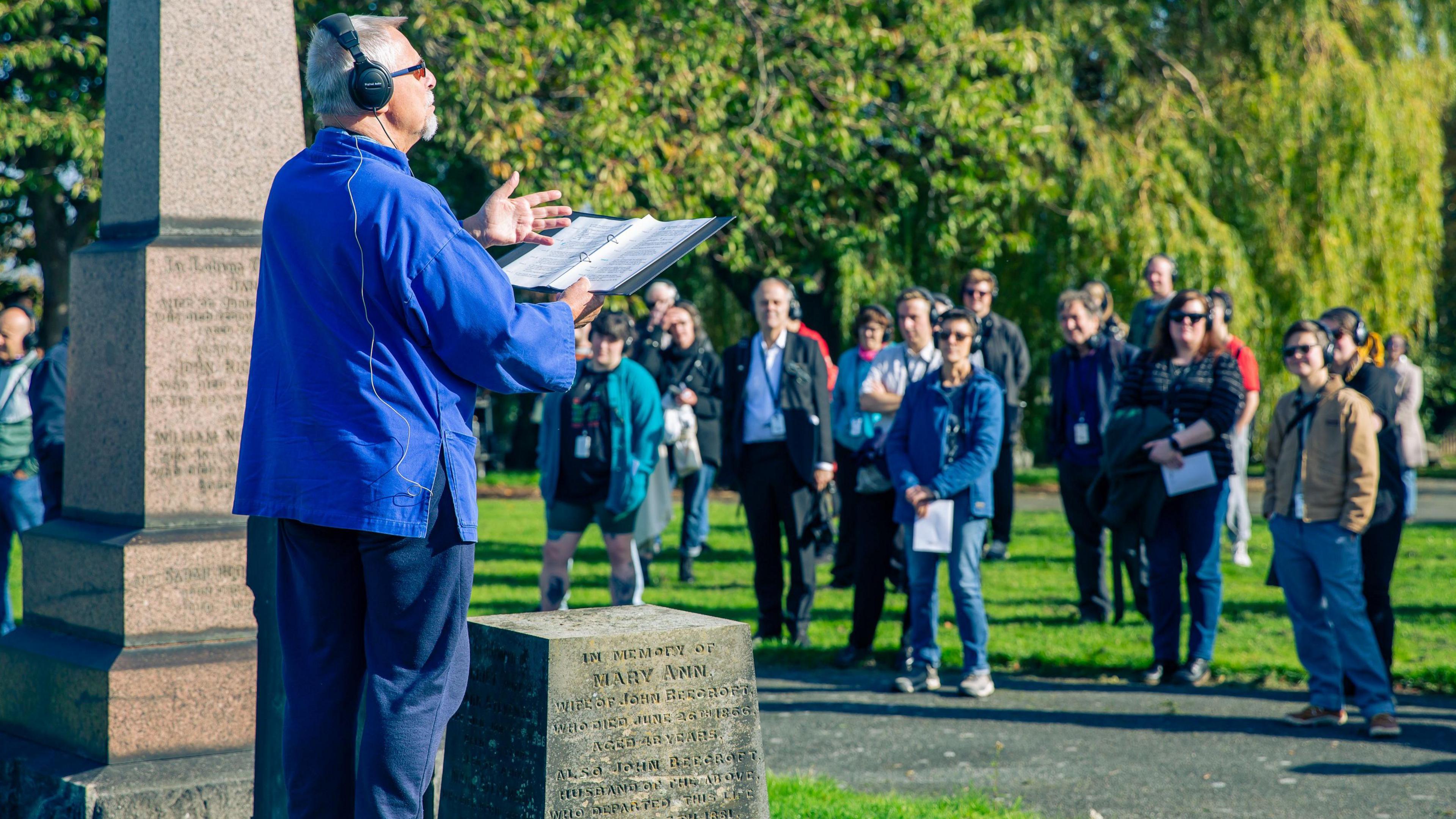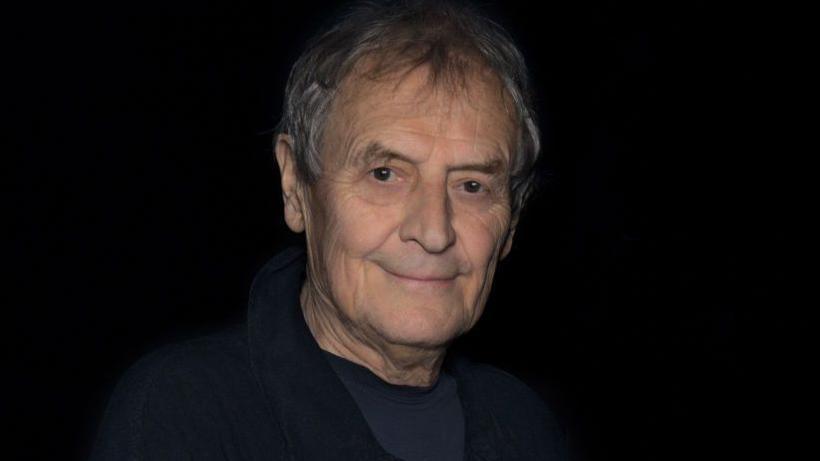Poem performed at cemetery that inspired it

The poem was performed in Holbeck Cemetery, where it is set
- Published
A poem once described as a "torrent of four-letter filth" has been performed in the graveyard that inspired it, following the death of its author.
Tony Harrison's poem V was read at Holbeck Cemetery in Leeds by five actors throughout the day on Sunday, to mark the 40th anniversary of its publication.
Organised by theatre company Slung Low and the London Review of Books, the performances were directed by Kully Thiarai, who previously led the year-long celebration of culture, Leeds 2023.
She said she felt privileged to "bring the poem back to where it started, enabling us all to look at how we might come together for a more hopeful future".
Ms Thiarai said reading the poem today felt "even more powerful" than when she first experienced it when it was published in 1985.
"As a working class teenager growing up in the 1980s much of what Harrison captures in V is a potent reminder of the world I had to navigate," she said.
Among the actors who performed was Barrie Rutter, who starred in many of Harrison's plays, and was artistic director of the Northern Broadsides theatre company in Halifax.
The poem was also performed by Riana Duce, Dominic Gately, Linda-Ray Ndlovu, and Keith Saha.

Tony Harrison, who died in September, was described as a "poet of Leeds - moulded by the city"
According to the LRB, V was written after Harrison found graves vandalised with racist graffiti in Holbeck Cemetery while visiting his parents' memorials.
In 1987, activist and anti-obscenity campaigner Mary Whitehouse learned Channel 4 had planned to broadcast a film of Harrison reading the poem in full, which was directed by Richard Eyre.
The Daily Mail wrote that it was "a torrent of four-letter filth".
When it was broadcast at 23:00 on 4 November 1987, it contained the longest sequence of sexually explicit words in British television history.
Harrison, who was born in Beeston, encouraged the site-specific performances before his death in September.
The performances were followed by a panel discussion about the poem's power led by Prof Edith Hall, who wrote the book Poet of Radical Classicism about Harrison's work.
Get in touch
Tell us which stories we should cover in Yorkshire
Listen to highlights from West Yorkshire on BBC Sounds, catch up with the latest episode of Look North.
Related stories
- Published29 September
